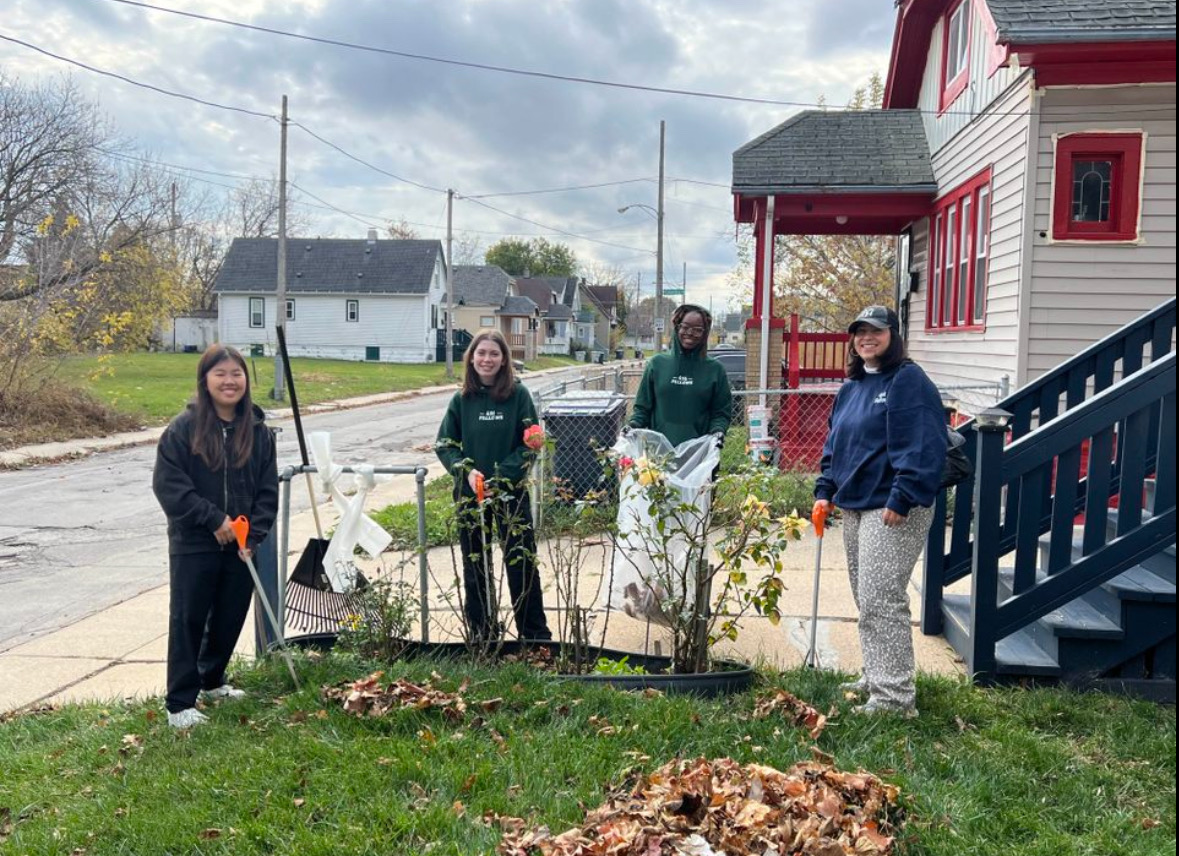“I hate kids,” is a common phrase to hear. I once said it as a younger teen, even though I was also still a kid myself. Aside from not wanting children, I also perceived kids younger than me as being stupid, confusing and annoying.
Fast forward five years later, and I am now studying to become a teacher.
This is because I realized young people are an oppressed group of people, and they deserve better. However, some don’t recognize this. It leads to older people harassing young retail workers, teachers belittling students and parents ignoring their children’s needs and desires.
When young people push back against this, it is often seen as a result of a “generational divide.” However, this divide is not all based on ideological differences; It can also stem from ageism.
Ageism is prejudice against someone due to their age, which can be seen in workplace policies and medical practices, like using patronizing behavior toward them and self-limiting behavior, according to the World Health Organization. This term is most often used to talk about the discrimination the elderly face. Unfortunately, ageism against young people, especially children, is less talked about.
The WHO stresses that “ageism affects everybody,” including youths. Youths can be considered as anyone society does not perceive as an adult, and this is often justified on the basis of young people having an undeveloped brain. The idea that brain differences can or should be a basis for subjugation appears in ageism against the elderly as well as ableism, and historically in theories about race and gender.
This justification in youth subjugation can be referred to as “adultism,” which is a dismissal of children’s opinions, needs and culture due to being undeveloped or inexperienced.
“Generotocacy,” or a government run by older adults, should also be discussed in conversations about generational divides. The Silent Generation, Boomers and Gen Xers hold the most power in society. According to a 2020 Pew Research Center study, just 34% of people in the United States are over 50, but 52% of the U.S. electorate are over 50.
Generotocacy reflects the fact that our government does not accurately represent our population across ages so it is unable to act in the favor of all people.
19-year old Greta Thunberg made an infamous speech at the 2019 United Nations Climate Summit when she was 16. In her speech, Thunberg called out world leaders for praising her activism, while still not listening.
“This is all wrong,” Thunberg says. “I shouldn’t be up here. I should be back in school on the other side of the ocean. Yet you all come to us young people for hope. How dare you!”
Thunberg expresses her anger at government officials for praising her activism, but not meeting her demands. She questions why she was brought there to inspire people who “continue to look away” from the reality of climate change.
Young people are often praised for our activism, but we are not really listened to. Older generations are deliberately placing messes in the hands of young people who are not given the tools or opportunities to fix these problems.
Although academics and activists have acknowledged youth subjugation for decades, concrete youth liberation organizations haven’t existed until recently.
The Youth Liberation Front based in the Pacific Northwest encouraged protests in Portland, Oregon following the murder of George Floyd in May 2020.
In a tweet from June 18, 2020, the group said, “We are a bunch of teenagers armed with ADHD (attention deficit hyperactivity disorder) and yerba mate — we can take a 5 a.m. raid and be back on our feet a few hours later … we’ll be back again and again until every prison is reduced to ashes and every wall to rubble.”
Their statement reflects not just the biting humor of Generation Z, but also our persistence and realism. We know we have been left with a mess. We know older people will not listen to us, so instead, we chose to make them listen.
It’s a tricky issue because all of us will grow up. There becomes a sense of cognitive dissonance as we age; We tend to exaggerate our generation’s good qualities while highlighting the younger one’s poor qualities. This is a cycle that needs to end.
We must call out ageism in everyday life, especially our own.
Marquette is one school system that could change the way students are involved with its administration.
For example, students don’t get to choose what their tuition goes toward. Many buildings on campus need renovations as is outlined in Marquette’s Campus Master Plan for the next 10 to 20 years. Instead of repairing buildings such as Lalumiere Language Hall, Mashuda Hall or Humphrey Hall, donor funding was allocated toward building The Commons in 2018 and constructing the new business building.
If Marquette were to get students’ opinions on this matter, it might have been able to make a better decision about where to allocate funds.
To combat ageism, it is not enough to try to improve the conditions of young people. They must be given an active role in their liberation. Critics may say children or even young adults cannot do this; they do not have the language or skills to help themselves. However, I can remember repeating the phrase “it’s not fair,” numerous times to educators and parents alike during my youth. It’s as simple as that phrase — and all we need to do is ask young people what “fair” would look like to them.
Marquette can start by asking its students what they want. The administration doesn’t always know what’s best. We must make ourselves heard, and Marquette must be willing to listen.
This story was written by Jenna Koch. She can be reached at jenna.koch@marquette.edu.



